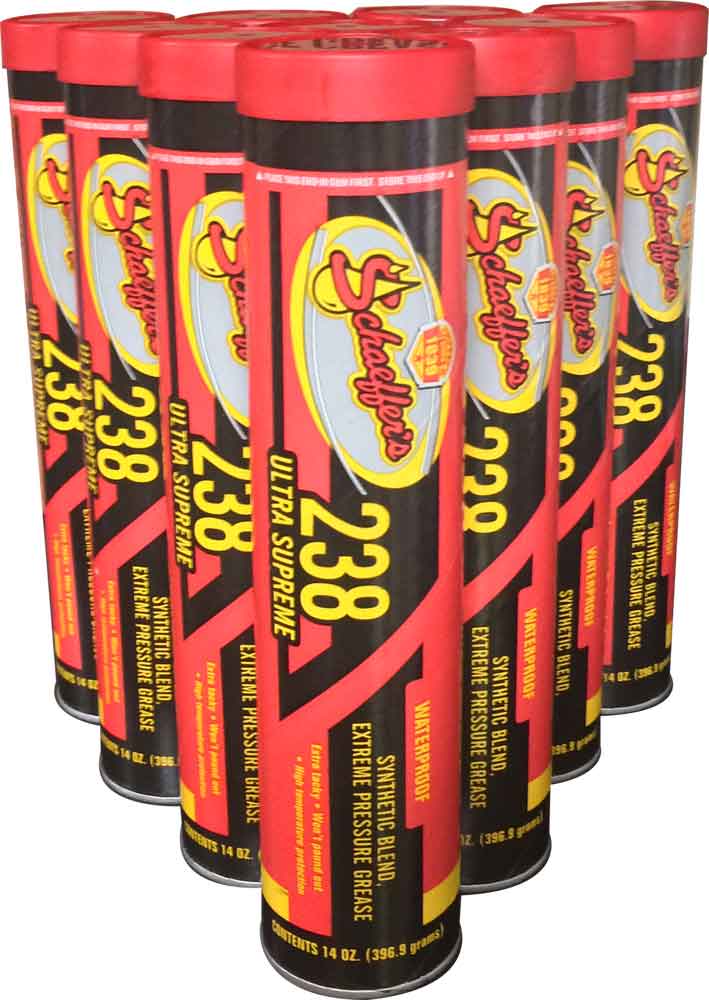Grease! Things That You Might Not Know

You may think you know everything there is to know about grease, but there are some interesting facts that might just change the way you think about this essential lubricant.
For starters, did you know that a key ingredient in some premium greases is molybdenum (aka. moly)? This metallic element provides exceptional extreme pressure and anti-wear properties, making it a critical component in high-performance greases.
Another little-known fact is that the thickener used in grease can have a major impact on its performance. Aluminum complex and bentone based greases, for example, offer superior mechanical stability and water resistance compared to more common, less expensive lithium-based greases. This difference in thickener composition can significantly affect the grease's ability to withstand high temperatures and heavy loads.
Aluminum complex greases, in particular, excel in extreme pressure situations and have excellent adhesion properties, making them ideal for applications in heavy machinery and automotive components.
Bentone-based greases, on the other hand, offer exceptional chemical stability and are often used in environments where exposure to high heat, acids, alkalis, or other corrosive substances is a concern. Their unique structure allows them to maintain consistency even under severe temperature fluctuations, a crucial factor in many industrial applications.
Moreover, the choice of thickener can influence the grease's compatibility with seals and other materials, potentially extending the lifespan of equipment and reducing maintenance costs. By selecting the appropriate thickener for specific operating conditions, engineers can optimize lubrication efficiency and significantly enhance overall system performance.
Speaking of thickeners, the NLGI grade - a measure of a grease's consistency - is an important consideration when selecting the right product for the job. Heavier, higher-numbered grades are better suited for slow-moving, heavily loaded applications, while lighter grades flow more freely for high-speed use. This grading system allows engineers and maintenance professionals to precisely match the grease's properties to the specific requirements of the machinery.
For instance, NLGI grade 2 is commonly used in general-purpose applications due to its versatility, while grade 0 or 00 might be preferred in centralized lubrication systems where pumpability is crucial.
It's also worth noting that external temperature plays a significant role in grease selection. Some greases may soften or harden dramatically with temperature changes, potentially compromising their effectiveness. Therefore, considering the operating temperature range of the equipment is essential when choosing the appropriate NLGI grade. Furthermore, the base oil viscosity within the grease formulation should align with the NLGI grade for optimal performance. This synergy ensures that the grease maintains its consistency and lubricating properties under various operating conditions, ultimately extending equipment life and reducing maintenance costs.
These are just a few of the insider details that set the top-tier grease formulations apart. Understanding the science and chemistry behind these specialized lubricants is the key to selecting the perfect product for your equipment's unique needs.
Ask a good grease manufacturer for the technical details of a certain grease you're thinking of buying, and you'll see that it's gone through a variety of different tests. In fact, everything from the thickness, wear, oxidation prevention properties, water washout and the way the grease changes (aka. dropping point), or, better yet, doesn't change! under certain conditions.
A good manufacturer won't just tell you about these tests. Instead, they'll actually give you the results! That way, you can be assured that your grease really is capable of everything that its manufacturers claim.
You can always find the best greases at https://stores.buy1oils.com
rev. 7.24
Recent Posts
-
Shelf Life Matters
When it comes to maintaining your vehicles and equipment, understanding the shelf life of engine oil …11th Dec 2024 -
Schaeffer Diesel Additives Decoded
Are you confused as to which of the Schaeffer's Diesel Treat Products fit your application the best? …8th Oct 2024 -
Understanding Schaeffer's Polyurea Grease
Schaeffer's Polyurea Grease is a tough, long-lasting grease that's perfect for roller element bearin …25th Jul 2024
